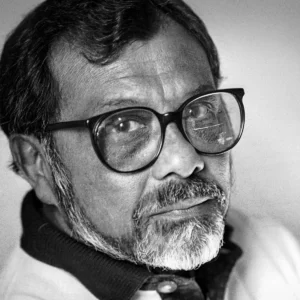“Black Is The Colour Of Our Politics, Not The Colour Of Our Skins”
Ada Akpala
The term “political blackness” gained notoriety in the 1970s and came to refer to anyone in the UK who was likely to face prejudice because of their skin tone—that is, anyone who was not “white.” This ideological framework gave black Britons increased political and cultural power, as well as a platform to voice the many inequalities they faced in society.
By the 1990s, the term had lost its lustre, not only among other minority groups who felt it erased their specific identities, but also among blacks who felt that their socioeconomic plight was being diluted at best and hijacked at worst by the uniquely different challenges that other groups faced. Nevertheless, vestiges of the ideology persisted and continue to play a central role in the way that many black people view both themselves and others.
It goes without saying that today’s society, particularly in the Western world, is obsessed with racial identity. Despite seemingly good motives to end racism and advance equality, the current fixation on racial differences is stymying those efforts. With calls for colour-consciousness to be a social norm, it is virtually taboo to be thought of as being “colour blind” in many anti-racist circles.
Persisting in these race-politics games, in which essentialist traits are assigned to individuals based on their group identity, or where skin colour is elevated above other characteristics, actually fosters a culture in which racial animosity, tribalism, and intergroup conflict will be difficult to overcome.
What is racial identity in the context of blackness? What does it mean exactly? Who has the authority to decide its meaning? These questions seem odd, and they certainly are, but they persist because so many people, regardless of ethnicity, feel compelled to make observations about the “blackness” of others. Recently, Rupa Huq, whose parents immigrated from Bangladesh to the United Kingdom in 1962, deemed it acceptable to assert that ex-Chancellor Kwasi Kwarteng was “superficially black” due to the prestigious schools he attended and the fact that “if you heard him on the radio, you wouldn’t know he was black.”
Her suspension as a Labour Party representative was reasonable and expected, but it does not answer all the questions that arise following incidents like this. Where does this audacity to comment on a person’s heritage originate? What characteristics define a genuine black person? Is it phenotypic features? Is it based on a person’s geographical origin? Or does it simply depend on whether or not they “sound black?” Has Kwasi Kwarteng’s blackness been diminished as a result of his attendance at affluent schools and use of a refined dialect? Would his use of slang and broken English pass the test of genuine blackness?
This type of myopic thinking emerges time and again, exposing the true bigotries of these so-called liberals. They love to point the finger at “the system” whenever they are questioned about the factors that impede the social advancement of certain communities. Yet they fail to recognise that their own lowered standards and de haut en bas approach are the real enemies of black progress.
The Huq-Kwarteng case is a prime example of how being black is not about one’s ethnicity, background, heritage, or even skin colour; rather, it is one’s adherence to political ideology, resonating with the Political Blackness movement of the 1970s.

“We had political unity in cultural diversity. And Black was the colour of our politics, not the colour of our skins.“ – Ambalavaner Sivanandan
Attacking people’s ethnicity rather than challenging their ideas is a sign of intellectual immaturity. Whether it’s being dubbed “a black face” or having your entire cultural identity questioned for not voting a certain way, it appears that being black implies only one way of being and thinking. I, too, have been told I’m “not black” and “excluded” from the black community because I didn’t agree with the standard talking points about the “black experience.”
Kwasi Kwarteng is visibly black, but that doesn’t mean much these days. A black person who had a good upbringing and came from privilege appears to be an oxymoron. True blackness must mean a challenging existence and the ceaseless enduring of hardship. We should especially be grateful to those who have assumed the role as “guardians of blackness,” admitting or expelling people based solely on their own perception of whether or not they represent authentic blackness.
Ironically, those who have traditionally been regarded as the most ardent supporters of black people are also those who believe they have the absolute authority to police a black person’s identity. They are convinced in their delusory minds that they are the only ones who can provide the best policies, ideologies, and platforms for black people.
Reality has repeatedly exposed them as fraudsters who profit from the black community’s deep wounds and sensitive issues. Yet, we enable and reward such people and the platforms they represent. We make excuses for them, elect and re-elect them, in spite of the scores of reasons not to. These self-appointed protectors and conferrers of blackness, use the concept of blackness itself as a tool to rein in defiant individuals.
It’s interesting to see which accomplished black people the allies choose to endorse and which ones they choose to denigrate. According to Rupa Huq’s logic, Barack Obama, who also attended elite academies and internationally renowned universities, should not be black enough either.
No one, however, views his blackness as superficial; they may disagree with his ideas and criticise some of his policies, but he is still typically held up as a symbol of black excellence, and rightly so, given that he made history as a black man. The point is that the rules must remain consistent; otherwise, it reinforces the notion that blackness has more to do with adhering to particular sociopolitical ideologies than anything else, and we should stop pretending that this is not the case.
Many of these advocates for social justice seem unwilling to acknowledge that black people can and do have a wide range of life experiences. Imagine being labelled “superficial” for having attended prestigious schools. Hundreds of thousands of black parents around the world invest their entire savings to send their children to the best schools in the world. According to the Higher Education Statistics Agency’s 2020/2021 statistics, there are currently 21,305 Nigerian students pursuing degrees in the UK. It’s unfortunate that those who have invested in themselves and strived to pursue a meaningful career and create a comfortable life for their families are told they aren’t black enough or that they act white. Why are we still having this conversation in 2022?
Having a better life is not a transition from one racial group to another. There is more to being black than just struggle and suffering. If anything, young black people, especially young black boys, need more role models like Kwasi Kwarteng.
It’s important to note that many black people are being socially programmed to downplay their accomplishments in favour of their struggles. Many black entertainers and public figures exaggerate their hardships or conceal their privileged upbringings out of fear of alienating or repelling fans. There seems to be a fetishization of struggle, and until this collective mindset changes, blackness will remain synonymous with oppression.
Observe that those whose blackness is most frequently questioned are those who dare to go against the grain of mainstream thought and who have unfettered themselves from being beholden to political parties and institutions that falsely portray themselves as the saviours of black people. The attacks on them are unending – and have become normalised. Why else would Biden have felt so at ease claiming that people considering voting for Trump in the 2020 elections were not black?
This overdependence on certain parties, who have repeatedly pretended to be allies in order to pass laws and enforce policies, has only pushed black people to the back of the line, while everyone else gets to skip ahead. Their entire structure is energised by the trauma of black people, to the point where black advancement and upward mobility appear to be an affront to their hegemony.
As a result, black people must speak and act the same, aim for the same heights and sink to the same depths. Personal ambition must be surrendered to groupthink, or else one runs the risk of losing their blackness. As though blackness is something that is given and taken by political parties as a reward for good or bad behaviour, as a parent does with a child.
That we still need to have this conversation today is just as sad as it is an indictment on our society as a place that grapples with the meaning of blackness and has political overlords and institutions bent on defining, policing, and boxing in the multiplicity of experiences of a “racial” group. As much as we want to fight against people like Huq and their low standards for black people, we can also be honest with ourselves and understand that a black person can be whoever they want to be, believe whatever they want to believe, and associate with whoever they want to associate with. The same rights as any other human being. While criticising, disagreeing with, or challenging our views is acceptable, doing so on the basis of our skin colour is not. It is time to put an end to practises such as identitarian gatekeeping, hive mentality, and the downplaying of our privileges in order to satisfy the conditions of a narrative or fit into a particular cultural mould. The time to end it is now. We are free.

Ada Akpala
Challenge Yourself, Others And The World.
Thank you for reading. If you enjoyed this article, consider leaving a one-off or monthly contribution. Thank you for your support.
3 thoughts on “Black – The Colour Of Our Politics, Not Our Skins”
Spectacular as always!
Thank you!
Well written. I’m sure there are nuances in there to explore, and areas I simply don’t know enough about (I might perhaps have included a little more on the reality of racism and bias holding black people back), but I thoroughly agree with the principle.
Comments are closed.